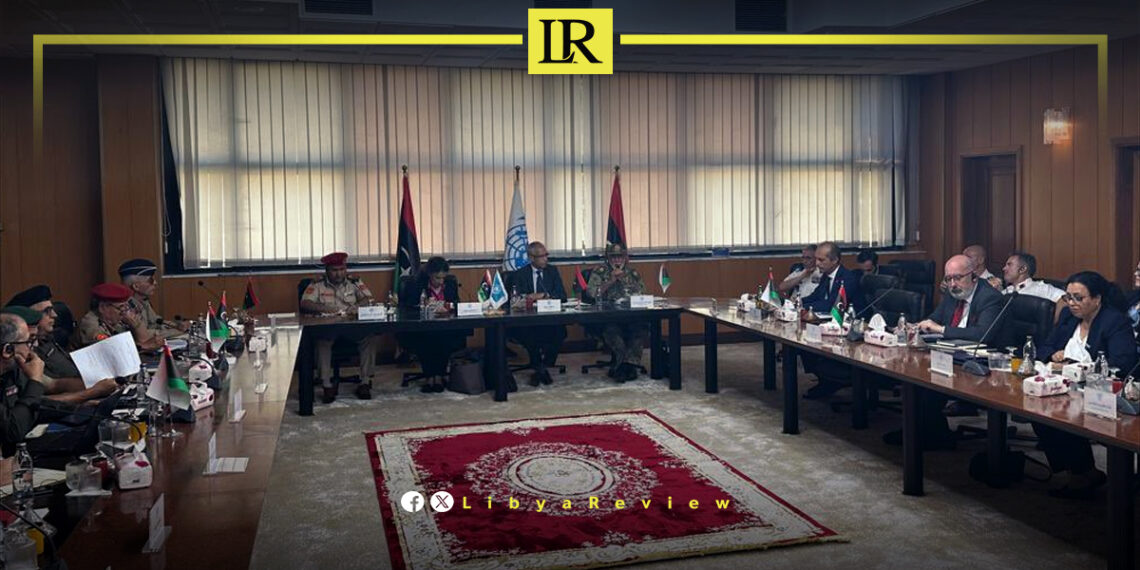Stephanie Khoury, the Acting Head of the United Nations Support Mission in Libya, co-chaired a security working group meeting alongside the French Ambassador and principal co-chair, Mostafa Mihraje. The meeting included members of Libya’s Joint Military Committee 5+5 and other co-chairs, focusing on bolstering peace and security in Libya.
During the meeting held in Sirte, Khoury expressed gratitude for the warm welcome from the Joint Military Committee 5+5, local dignitaries, civil society, and military leaders. She emphasized the sovereignty and territorial integrity of Libya and the pivotal role of the Joint Military Committee 5+5 in maintaining peace and stability. This committee is also instrumental in fostering a conducive environment for reviving the political process leading to elections.
Khoury stressed the urgent need to end the political deadlock to unify the state’s institutions, particularly the military and security institutions, and to enable the full implementation of the ceasefire agreement by the Joint Military Committee.
She reiterated the commitment of the United Nations Support Mission in Libya, along with its partners in the security working group, to support the Joint Military Committee in carrying out its critical tasks.
Libya has been in chaos since a NATO-backed uprising toppled longtime leader Muammar Gaddafi in 2011. The county has for years been split between rival administrations.
Libya’s economy, heavily reliant on oil, has suffered due to the ongoing conflict. The instability has led to fluctuations in oil production and prices, impacting the global oil market and Libya’s economy.
The conflict has led to a significant humanitarian crisis in Libya, with thousands of people killed, and many more displaced. Migrants and refugees using Libya as a transit point to Europe have also faced dire conditions.
The planned elections for December 2021 were delayed due to disagreements over election laws and the eligibility of certain candidates. This delay has raised concerns about the feasibility of a peaceful political transition.
Despite the ceasefire, security remains a significant concern with sporadic fighting and the presence of mercenaries and foreign fighters. The unification of the military and the removal of foreign forces are crucial challenges.


